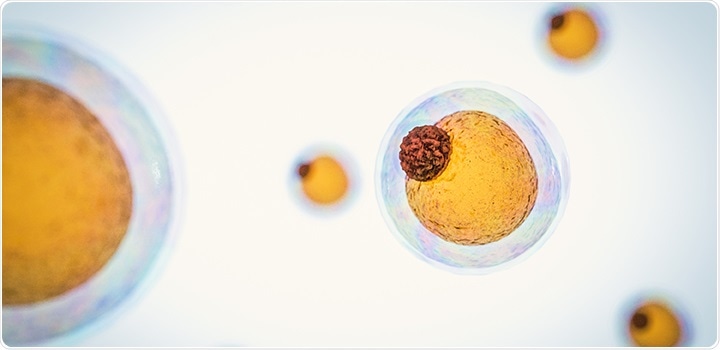New research from the University of East Anglia and Quadram Institute reveals how our immune cells use the body’s fat stores to fight infection.

Image Credit: University of East Anglia
The research team say their work could one day help treat infections in vulnerable and older people.
The team studied Salmonella - a bacterial infection which causes diarrhoea, vomiting, abdominal pain, fever and sepsis.
The UEA team collaborated with the Quadram Institute and colleagues at the Earlham Institute, to track fatty acid movement and consumption in live stem cells.
They went on to analyze the immune response to Salmonella bacterial infection, by analyzing liver damage.
They uncovered how blood stem cells respond to infection, by acquiring high energy fatty acids from the body’s fat stores.
The team found that in the bone marrow where blood stem cells are resident, infection signals drive adipocytes to release their fat stores as fatty acids into the blood.
And they identified that these high energy fatty acids are then taken up by blood stem cells, effectively feeding the stem cells and enabling them to make millions of Salmonella-fighting white blood cells.
The researchers also identified the mechanism by which the fatty acids are transferred and discusses the potential impact this new knowledge could have on future treatment of infection.
Dr Stuart Rushworth, from UEA’s Norwich Medical School, said: “Our results provide insight into how the blood and immune system is able to respond to infection.
“Fighting infection takes a lot of energy and fat stores are huge energy deposits, which provide the fuel for the blood stem cells to power up the immune response.
“Working out the mechanism through which this ‘fuel boost’ works gives us new ideas on how to strengthen the bodies fight against infection in the future.”
Dr Naiara Beraza, from the Quadram institute, said: “Our results allow us to understand how our immune system uses fat to fuel the response to infection. Defining these mechanisms will enable us to develop new therapeutics to treat infections in the liver.”
In the future, I hope our findings will help improve treatment for vulnerable and older people with infections, by strengthening their immune response. With antibiotic resistance being such a present and widespread challenge for society, there is an urgent need to explore novel ways like this to help the body’s immune system to fight infection."
Dr Stuart Rushworth, Norwich Medical School, UEA
The study was led by UEA and QI in collaboration with the Earlham Institute. It was funded by the Wellcome Trust and the Biotechnology and Biological Sciences Research Council (BBSRC), with support from the UK Medical Research Council.
‘Free fatty-acid transport via CD36 drives β-oxidation-mediated hematopoietic stem cell response to infection’ is published in the journal Nature Communications on December 8, 2021.
Source:
Journal reference:
Mistry, J.J., et al. (2021) Free fatty-acid transport via CD36 drives β-oxidation-mediated hematopoietic stem cell response to infection. Nature Communications. doi.org/10.1038/s41467-021-27460-9.